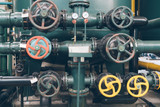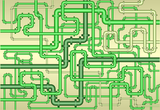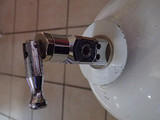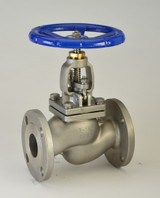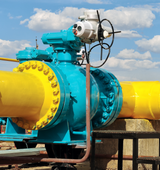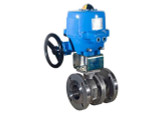Air-actuated valves may also be known as air-actuator valves, air-operated valves, or even pneumatic valves. They serve a range of different uses in a variety of industries and can simplify certain systems significantly. Let’s take a more detailed look at their benefits and uses.
What is an Air Actuated Valve?
An air actuated valve, as the name suggests, relies on air to bring the valve into operation. It’s both fairly simple and reasonably complex, as you’ll see in just a moment.
How Does an Air Actuator Valve Work?
In an air actuated or pneumatic valve, the application of compressed air from an external source pushes against a piston or diaphragm in an internal chamber of the valve. In response to the pressure buildup, the valve then opens or closes. The direction in which the air pressure is applied determines whether the valve opens or closes.
What Are the Common Applications of Air Actuated Valves?
Air-actuated valves find use in a wide range of industries and applications, largely due to their ease of use and the fact that a single air compressor can often run multiple air actuator valves. Some of the potential applications include the following:
- Systems for Industry Automation - Thanks to their efficiency and low input requirements, many industry automation systems use these valves.
- HVAC installations - In some HVAC applications, the air-actuated valve may be a useful way to automate processes.
- Machinery (both fixed and movable) - Many different types of machinery incorporate air actuator valves since they’re small and easy to use, and you can run several of them from a single air compressor unit.
- Chemical plants - These valves may be used to automate the introduction of certain chemicals at certain times in the process.
- Automotive air brakes - Many air brake systems use pneumatic or air actuator valves to ensure the proper operation of the brake system.
- Medical Equipment like ventilators and cell-growth systems
- Aviation - Air-actuated valves may play a part in various aircraft actuation systems, including landing gear.
Unleash the Power of Air: Advantages of Air Actuated Valves
Air-actuated valves have many different advantages, making them ideal for a whole range of different applications. Some of the benefits you may encounter when using this type of valve include the following:
- A simple yet efficient design - Since these air-actuated valves have a fairly straightforward design, there are fewer moving parts that may malfunction. This gives them an advantage over certain other types of actuators. Their construction often makes them resistant to harsh environments and wear and tear, ensuring durability and long service life.
- Fast, responsive operation - Compared to certain other valve types, air actuated valves work really quickly and efficiently. This means that they’re ideal for time-sensitive applications where time is of the essence. This is due to the compressed air pressure acting directly on the valve mechanism, eliminating delays associated with electrical signals or complex gear systems.
- Safe and reliable - Since these valves operate solely on compressed air, which isn’t flammable, they’re a lot safer for sensitive environments than some other types of actuators. They’re also more reliable overall since they don’t rely heavily on electronic parts.
- Versatile and Adaptable - Because these valves come in an array of shapes and sizes, they’re a lot more versatile than one might think. Some of them also take up relatively little space, making them ideally adaptable for small spaces.
- Environmentally Friendly - Because they use compressed air rather than more harmful substances, pneumatic valves are a lot friendlier to the environment. You can use as many of them as you like and make a very low environmental impact.
Frequently Asked Questions (FAQs)
How Do I Select the Right Air Actuated Valve for My Application?
When trying to select the appropriate air actuated valve for your application, there are several things you need to consider before making a purchase. Some of these include the following:
- Match Air Flow and Materials - Ensure that the valve matches your system by considering the air flow rate, process temperature, and environment.
- Choose the Right Function - Select a valve that matches your desired function.
- Prioritize Safety - Ensure that you pick a valve that matches the rest of your safety systems.
- Ensure Automation Compatibility - Choose a valve that integrates seamlessly with your existing automation systems.
Do Air Actuator Valves Require Maintenance?
Air Actuator Valves do require maintenance. You should regularly check for signs of wear and tear and clean out any potential blockages. It’s also important to lubricate if instructed to do so by the manufacturer.
Everything You Need at ValveMan
If you’re ready to buy your air actuated valve, you can get it right here at ValveMan. We stock an array of different products, from pneumatic valves to electric actuators. And if you’re not certain which product you need for your application, feel free to contact us. One of our friendly and informative staff will be happy to help you.
Our Posts
View AllWhat is the cracking pressure of a check valve?
Check valves, regardless of their individual design, serve the specific purpose of permitting the fl …
Read MoreSmart Water Valves: Futuristic Flow Control Technology
Leaks can range from annoying to devastating, and the longer they go unaddressed, the more costly th …
Read MoreHow to Calculate Flow Rate In Water Systems
Flow rate is critical in water systems, from simple home plumbing to complex industrial water system …
Read MoreWhat Is a Valve Pressure Rating? Definition and Guide
Pressure ratings are important considerations when designing a system that uses valves, but they can …
Read MoreSpecial Pricing and Services for OEM - the ValveMan Valve Store
OEMs or Original Equipment Manufacturers make up a large portion of our clients at ValveMan. With th …
Read MoreData Cooling Centers and Sanitary Valves
Overheated data centers pose a massive challenge, and the global data center cooling market is growi …
Read MoreValve Materials for Gaseous Oxygen Service
Oxygen may seem safe because it is colorless, tasteless, and odorless, but in the wrong conditions, …
Read MorePneumatic Actuators Valve Types
Have you ever stopped to think about what makes an automated assembly line push, pull, lift, and rot …
Read More-320°F Liquid Nitrogen Cryogenic Control Valve Setup
Need a valve that can handle -320°F liquid nitrogen without freezing up — and still control flow? He …
Read MoreWhy Fall is the Perfect Time for Valve Maintenance (And What Happens If You Wait)
We're well into fall now, which means it's time for that conversation nobody wants to have: winter p …
Read MoreFrom the DMZ to Bonomi: Rick Wentzel’s Valve Legacy
In the inaugural episode of the Fully Open podcast, host Gil Welsford sits down with Rick Wentzel of …
Read More
Check Valve vs Backflow Preventer Comparison | ValveMan
If you need to make sure that fluid in your pipe system flows in one direction only, and prevent rev …
Read MoreDifferent Types of Gas Shut Off Valves | ValveMan
Whether you're upgrading your residential gas system, looking for the best gas shut off valve for yo …
Read MoreGlobe Valve vs Ball Valve Comparison Guide | ValveMan
Valves are widely used in industrial and manufacturing facilities, but they’re also used in utilitie …
Read MoreNEMA Ratings Explained | ValveMan
Have you ever wondered what that little NEMA number on your electric actuator meant? Or perhaps, you …
Read MoreGate Valve vs Ball Valve Comparison Guide | ValveMan
Valves are widely used in industrial and manufacturing facilities, but they’re also used in utilitie …
Read MoreValve Inspection - Main Points of Valve Inspection and Testing in Manufacturing Settings
Industrial facilities rely on different types of valves (such as gate valves, check valves and ball …
Read MoreCan Ball Valves Be Used For Flow Control?
Ball valves are widely used in plumbing and piping systems, in fact, they are one of the most common …
Read MoreIntroducing Bonomi Valves
The Bonomi Group is a leader in industrial sectors including oil and gas, hydraulics, heating and en …
Read MoreUnderstanding Valve Actuators: Manual, Electric, Pneumatic and Hydraulic
Are you a beginner new to the valve world, ready to learn more about the various types of valve actu …
Read More
 888-825-8800
888-825-8800







